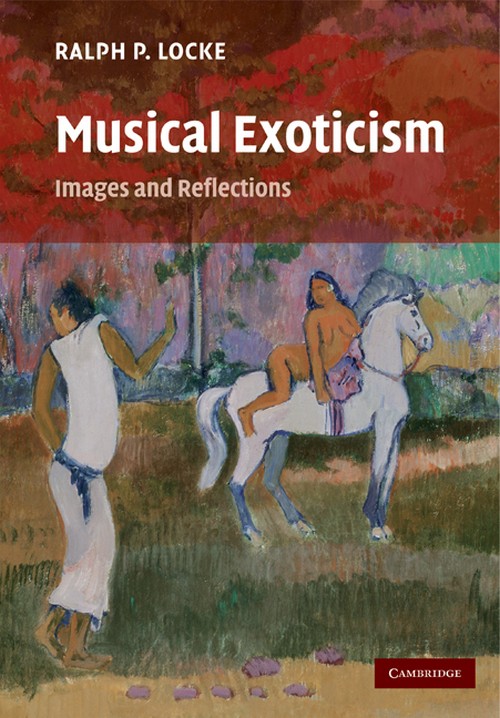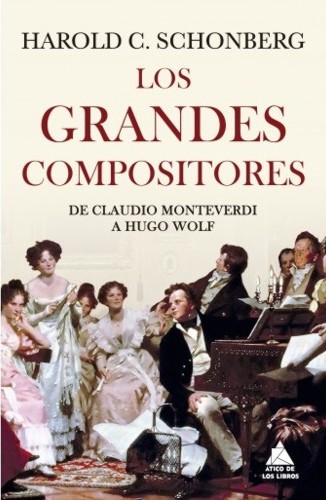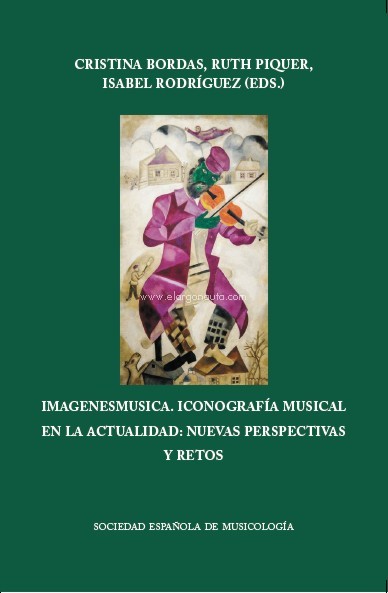
Musical Exoticism: Images and Reflections
Locke, Ralph P.
Cambridge University Press. 2011Ficha técnica
- EAN: 9780521349550
- ISBN: 978-0-521-34955-0
- Editorial: Cambridge University Press
- Fecha de edición: 2011
- Encuadernación: Rústica
- Dimensiones: 17x24,5
- Idioma: Inglés
- Nº páginas: XVIII+420
Bajo pedido
Sin stock. Si se pide hoy, se estima recibir en la librería el 21/07/25¡GASTOS DE ENVÍO GRATIS!
PVP. 82,40€
Añadir a la Lista de deseos
A Japanese geisha, a Middle Eastern caravan, a Hungarian-'Gypsy' fiddler, Carmen flinging a rose at Don José, Josephine Baker singing "Petite Tonkinoise" - portrayals of people and places that are considered somehow 'exotic' have been ubiquitous from 1700 to today, whether in opera, Broadway musicals, instrumental music, film scores, or in jazz and popular song. Often these portrayals are highly stereotypical but also powerful, indelible and touching - or troubling. "Musical Exoticism" surveys the vast and varied repertoire of Western musical works that evoke exotic locales. It relates trends in musical exoticism to other trends in music, such as programme music and avant-garde experimentation, as well as to broader historical developments such as nationalism and empire. Ralph P. Locke traces the history of exotic depiction from the Baroque era onward, and illustrates its phases through close study of numerous exotic works, including operas by Handel and Rameau, Mozart's "Rondo alla turca", Rimsky-Korsakov's "Sheherezade", Debussy's "Pagodes", Puccini's "Madama Butterfly", Bernstein's "West Side Story", and the culture-bridging opera "Marco Polo" by Chinese-born composer Tan Dun.
CONTENIDO:
Figures
Musical Examples
Acknowledgments
Notes to the reader
Introduction
Part I
1. Music, the world, and the critic
-Stylistic listening and worldly criticism
-Works, values, and scholars
2. Questions of value
-"Exotic": high praise or curse word?
-Edward Said?s Orientalism and other ideological critiques
-Applying Orientalist critiques to music
-Beauty and beastliness
3. Exoticism with and without exotic style
-Existing definitions
-A broader definition
-The "Exotic-Style Only" Paradigm
-The "All the Music in Full Context" Paradigm
-The then/now binarism
-Four other binarisms
4. Who is "Us"? The national and/as the exotic, and the treatment of stereotypes
-National style or exoticism?
-How works handle stereotypes and binarisms
Part II
5. Baroque portrayals of despots: ancient Babylon, Incan Peru
-Handel?s Eastern dramas
-Belshazzar, semi-comic Babylonian tyrant
-Empire and virtue
-Les Indes galantes: encyclopedic world tour
-Rameau?s Huascar: corrupt ruler and anticolonial terrorist
6. A world of exotic styles, 1750?1880
-Eighteenth-century ethnicities
-Delightful and vicious Turks: Molière/Lully, Favart, Gluck, Mozart
-The Turkish style
-Mozart?s alla turca non-rondo
-The proliferation of exotic and national dialects
-Liszt?s gifts: Gypsy "opium" and the national rhapsody
7. Exotic operas and two Spanish Gypsies
-Regions on the nineteenth-century musical stage
-The Roma (Gypsies) in life and image
-"Abietta zingara"
-Gypsy characters and poor Andalusians
-The Gypsy Carmen?s non-Gypsyish lament
8. Imperialism and "the exotic Orient"
-Multiple empires, multiple Orients
-Silence over the imperial encounter
-The paradigmatic Oriental-opera plot
-Fragile women, fatal women, and the pentatonic
-Men: the forceful and the gentle
-Rituals, priests, and crowds
-Madama Butterfly: an opera of, and against, empire
9. Exoticism in a modernist age (c. 1890?1960)
-The turn against Overt Exoticism
-Pagodes: Javanese pentatonicism Trans(culturally)figured
-Are Submerged and Transcultural approaches exotic?
-Overt Exoticism in concert music and opera
-Overt Exoticism in popular genres
-West Side Story and exotic Otherness
10. Exoticism in a global age (c. 1960 to today)
-New compositions
-Exotic varieties of jazz
-With technological assistance from...
-Elfin kingdom and other movie realms
-Pop exotica
11. Epilogue: exotic works of the past, today
-Performing exotic works
-The afterlife of exotic stage works
-Pondering exotic works as they are
Notes
Bibliography
Index





